Filter by
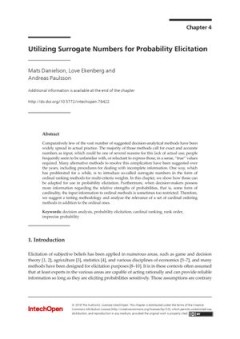
Utilizing Surrogate Numbers for Probability Elicitation
Comparatively few of the vast number of suggested decision-analytical methods have been widely spread in actual practice. The majority of those methods call for exact and accurate numbers as input, which could be one of several reasons for this lack of actual use; people frequently seem to be unfamiliar with, or reluctant to express those, in a sense, “true” values required. Many alternativ…
- Edition
- -
- ISBN/ISSN
- 9781789237955
- Collation
- -
- Series Title
- -
- Call Number
- -
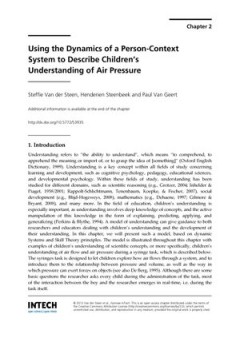
Using the Dynamics of a Person-Context System to Describe Children’s Unders…
Using the Dynamics of a Person-Context System to Describe Children’s Understanding of Air Pressure
- Edition
- -
- ISBN/ISSN
- 9789535108559
- Collation
- -
- Series Title
- -
- Call Number
- -
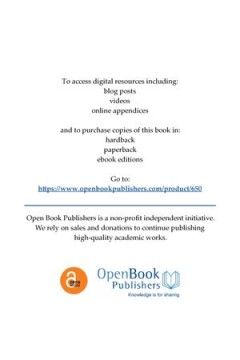
Exploring the Interior
"In this fascinating collection of essays Harvard Emeritus Professor Karl S. Guthke examines the ways in which, for European scholars and writers of the eighteenth and early nineteenth century, world-wide geographical exploration led to an exploration of the self. Guthke explains how in the age of Enlightenment and beyond intellectual developments were fuelled by excitement about what Ulrich Im…
- Edition
- -
- ISBN/ISSN
- 9781783743957
- Collation
- -
- Series Title
- -
- Call Number
- -
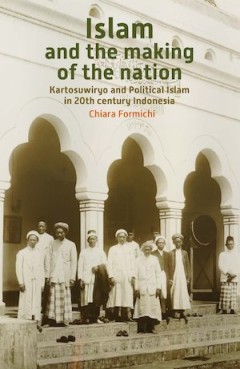
Islam and the Making of the Nation Kartosuwiryo and Political Islam in 20th …
Recently Kartsowiryo and the Darul Islam have become heroic symbols of the Islamist struggle. The author looks beyond the popular dichotomy between rebel and martyr and unveils a politician whose legacy has been shaping the role of Islam in Indonesian politics for over fifty years. She thereby offers an alternative view of Soekarno as the leader of the republic and his antagonism with the Islam…
- Edition
- -
- ISBN/ISSN
- 9789067183864
- Collation
- -
- Series Title
- -
- Call Number
- -
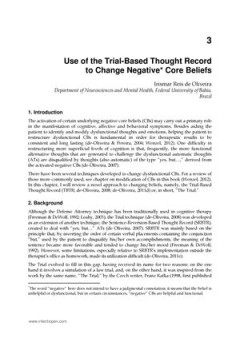
Use of the Trial-Based Thought Record to Change Negative Core Beliefs
Use of the Trial-Based Thought Record to Change Negative Core Beliefs
- Edition
- -
- ISBN/ISSN
- 9789535103127
- Collation
- -
- Series Title
- -
- Call Number
- -
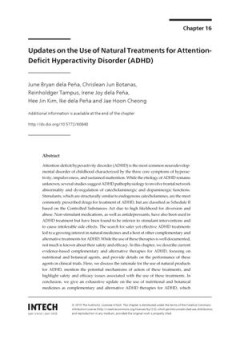
Updates on the Use of Natural Treatments for Attention-Deficit Hyperactivity …
Attention-deficit/hyperactivity disorder (ADHD) is the most common neurodevelopmental disorder of childhood characterized by the three core symptoms of hyperactivity, impulsiveness, and sustained inattention. While the etiology of ADHD remains unknown, several studies suggest ADHD pathophysiology to involve frontal network abnormality and dysregulation of catecholaminergic and dopaminergic func…
- Edition
- -
- ISBN/ISSN
- 9789535121664
- Collation
- -
- Series Title
- -
- Call Number
- -
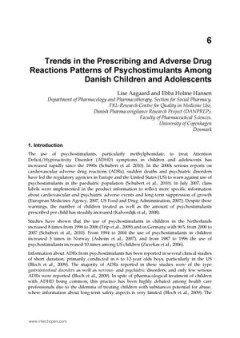
Trends in the Prescribing and Adverse Drug Reactions Patterns of Psychostimul…
Trends in the Prescribing and Adverse Drug Reactions Patterns of Psychostimulants Among Danish Children and Adolescents
- Edition
- -
- ISBN/ISSN
- 9789533078687
- Collation
- -
- Series Title
- -
- Call Number
- -
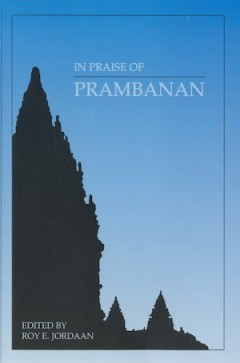
In Praise of Prambanan Dutch essays on the Loro Jonggrang temple complex
In praise of Prambanan is devoted to the Hindu-Javanese temple complex of Candi Prambanan, also known by its locally more popular name of Candi Loro Jonggrang. The book has two parts. Part One is a general introduction to the temple complex based on an examination of the existing scholarly literature. It offers a detailed state-of-the-art survey of publications on Candi Prambanan as well as of …
- Edition
- -
- ISBN/ISSN
- 9789004260429
- Collation
- -
- Series Title
- -
- Call Number
- -
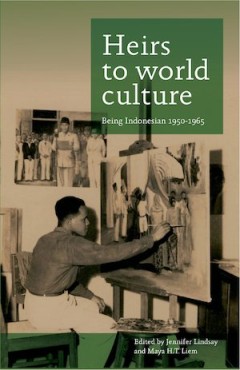
Heirs to World Culture Being Indonesian, 1950-1965
This volume brings together new scholarship by Indonesian and non-Indonesian scholars on Indonesia’s cultural history from 1950-1965. During the new nation’s first decade and a half, Indonesia’s links with the world and its sense of nationhood were vigorously negotiated on the cultural front. Indonesia used cultural networks of the time, including those of the Cold War, to announce itself…
- Edition
- -
- ISBN/ISSN
- 9789067183796
- Collation
- -
- Series Title
- -
- Call Number
- -

Healers on the Colonial Market Native Doctors and Midwives in the Dutch East…
Healers on the Colonial Market is one of the few studies on the Dutch East Indies from a postcolonial perspective. It provides an enthralling addition to research on both the history of the Dutch East Indies and the history of colonial medicine. This book will be of interest to historians, historians of science and medicine, and anthropologists. How successful were the two medical training prog…
- Edition
- -
- ISBN/ISSN
- 9789067183826
- Collation
- -
- Series Title
- -
- Call Number
- -
 Computer Science, Information & General Works
Computer Science, Information & General Works  Philosophy & Psychology
Philosophy & Psychology  Religion
Religion  Social Sciences
Social Sciences  Language
Language  Pure Science
Pure Science  Applied Sciences
Applied Sciences  Art & Recreation
Art & Recreation  Literature
Literature  History & Geography
History & Geography